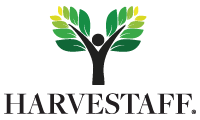How to Bounce Back from Setbacks in Your Career
Building resilience in your career is crucial for handling challenges and bouncing back from setbacks. Resilience helps you adapt, learn, and grow from difficult situations. Here are some tips to develop resilience and manage workplace challenges effectively.
1. Acknowledge Your Feelings
It's important to recognize and accept your emotions when faced with a setback. Whether it's disappointment, frustration, or anger, acknowledging these feelings can help you process them and move forward. Denying or ignoring your emotions can make it harder to bounce back.
2. Maintain a Positive Attitude
A positive attitude can make a significant difference in how you handle challenges. Focus on what you can control and try to see setbacks as opportunities for growth. Remember, every failure is a step towards success. Keeping a hopeful outlook can motivate you to keep going, even when things are tough.
3. Build a Support Network
Having a strong support network is essential for resilience. Surround yourself with colleagues, friends, and family who can offer encouragement and advice. Don't hesitate to seek help or talk about your challenges. Sometimes, just sharing your concerns can lighten the load and provide new perspectives.
4. Learn from Your Experiences
Every setback is a learning opportunity. Reflect on what went wrong and what you can do differently next time. This helps you improve and prevents you from making the same mistakes. Embracing a growth mindset, where you see challenges as chances to develop, can enhance your resilience.
5. Set Realistic Goals
Setting realistic and achievable goals can help you stay focused and motivated. Break down larger tasks into smaller, manageable steps. This makes it easier to track your progress and gives you a sense of accomplishment as you complete each step. Clear goals can guide you through difficult times and keep you on track.
6. Take Care of Yourself
Self-care is vital for building resilience. Ensure you are getting enough rest, eating well, and engaging in physical activity. Managing stress through mindfulness, meditation, or hobbies can also help. When you take care of your physical and mental well-being, you're better equipped to handle challenges.
7. Stay Flexible
Flexibility is a key component of resilience. Be open to change and willing to adapt your plans when necessary. Sometimes, unexpected events can lead to better opportunities. Staying flexible allows you to pivot and adjust your approach as needed.
Building resilience takes time and effort, but it is a valuable skill that can help you navigate the ups and downs of your career. By acknowledging your feelings, maintaining a positive attitude, building a support network, learning from experiences, setting realistic goals, taking care of yourself, and staying flexible, you can develop the resilience needed to bounce back from any setback.
